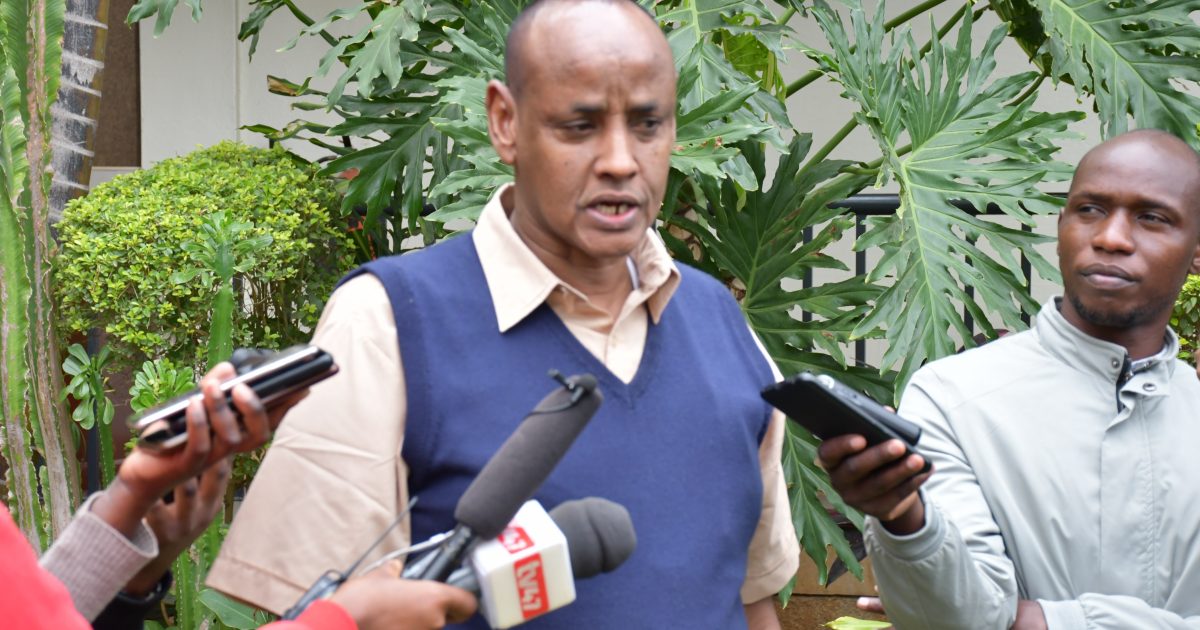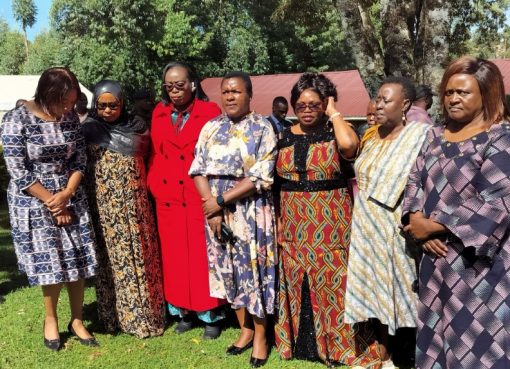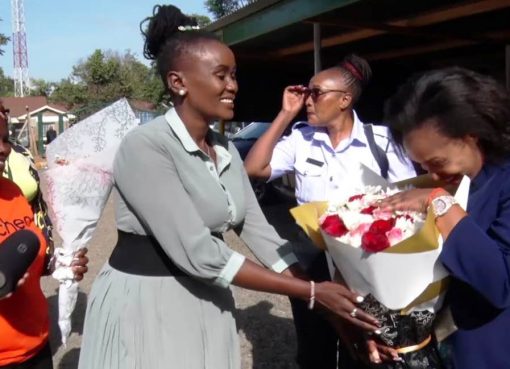Stiffer sentences have been introduced for any person, who causes death to a child, whether directly or indirectly, through forced male circumcision, female genital mutilation and child marriage as culprits shall, on conviction, be liable to life imprisonment without an option of fine.
The Children Act 2022 that has come into force further outlaws girl-child beading, organ change or removal in case of an intersex child, virginity testing and cultural or religious rites, customs or practices that are likely to negatively affect the child’s life, health, social wellbeing, dignity, physical, emotional or psychological development.
It is also a big win for Kenyan children as the statute now compels the National Government to establish a Child Welfare Fund to cater for the needs of children in distress.
At the same time the statute provides that culprits found guilty of online abuse, harassment or exploitation, whether through social networks, playing online games or by use of mobile phones or other electronic devices, be imprisoned for a term not exceeding ten years or to a fine not exceeding Sh2 million, or to both.
Speaking during a sensitization forum on the new legislation for various stakeholders at a Nakuru hotel, Acting Chief Executive Officer of the National Council for Children Services (NCFCS) Mr. Abdi Noor Mohammed noted that one of the significant highlights of the Children Act 2022 was its recognition of intersex persons who are now entitled to be treated with dignity, and to be accorded appropriate medical treatment, special care, education, training and consideration as a special need category in social protection services.
According to the Child Welfare Fund to be established under the Public Finance Management Act it will cater for all social security programmes designed by the National Government to facilitate the realization of the welfare of children.
The Children Act 2022, which took effect on July 26, 2022 further provides that the Treasury Cabinet Secretary establish the fund to cater for financial expenses incurred in provision of health care services, housing, and food of acceptable quality, emergency medical treatment, clean and safe water and social security to children from poor backgrounds.
The Act indicates that online abuse includes cyber bullying, grooming and solicitation, cyber enticement, cyber harassment and cyber stalking.
Clause 5 provides that a person who intentionally transmits or causes the transmission of any communication through a computer system or network to bully a child, and such communication places the child in fear of death, violence or bodily harm, commits an offence and shall, on conviction, be liable to imprisonment for a term not exceeding ten years or to a fine not exceeding Sh2 million.
Clause 2 defines an “intersex child” as a child with a congenital condition in which the biological sex characteristics cannot be exclusively categorized in the common binary of female or male due to inherent and mixed anatomical, hormonal, gonadal or chromosomal patterns, which could be apparent prior to, at birth, in childhood, puberty or adulthood.
Mohammed added that as a way of addressing stigmatization of intersex individuals, those found culpable of subjecting such a child to psychological abuse or child abuse shall, on conviction, be liable to imprisonment for a term not exceeding five years or to a fine not exceeding Sh2 million.
The new statute which is an upgrade from the Children Act 2001 and was assented to by President Uhuru Kenyatta on July 6, 2022 has revised upwards the age of criminal responsibility from the current 8 years to 12 years.
“A person under the age of twelve years shall not be criminally responsible for any act or omission and that a child who commits an offence while under the age of fourteen years shall be presumed not to be capable of differentiating between right and wrong unless the Court is satisfied on evidence to the contrary,” states Clause 221 of the law.
The new law also states that children accused of committing minor offenses, will not be taken through the court’s system, rather, they will be diverted to community-based systems.
For cases that are not minor, the law states that the Chief Justice may designate children’s courts in counties and sub counties and appoint a magistrate to preside over the cases in which a child is a victim or complainant.
“The Children’s Court shall have a setting that is friendly to the children who are before it,” states Clause 92. A Children’s Court, however, has no jurisdiction to try a child for murder.
It further provides that all children coming into conflict with the law will be provided with free legal aid to enable them to navigate through the justice system.
To bolster children’s physical fitness and participation in recreational activities all the 47 county governments will be required to appoint and designate specific areas in estates and villages as public child play and recreational facilities, which shall be accessible to all children, including children with disabilities.
Mohammed indicated that another giant score for children is that the law creates the Office of the Secretary of Children Services who shall be recruited through a competitive process and appointed by the Public Service Commission and whose mandate will be to institute proceedings in respect of any contravention relating to child maintenance, child neglect and abuse, regulate, coordinate, manage, and supervise children’s officers in delivery of the welfare and administration of children services.
The Secretary of Children Services shall also be responsible for establishing, administering and maintaining child protection centres, rehabilitation schools and a remand home in all the 47 counties, maintain up-to-date records and data on management of children services including access to welfare amenities for children and assist children in hardship, including children with disabilities, children living in the street, orphaned and destitute children, children who abuse drugs, children who are sexually abused and children who are affected by domestic violence.
The office will further provide services to trace, reintegrate or restore a lost or an abandoned child with parent or a guardian, intervene and secure the removal of a child in need of care and protection to a place of safety, promote family reconciliation and mediate in disputes involving children, parents, guardians or persons who have parental responsibility and supervise administration of children institutions including children’s rehabilitation centres, charitable children’s institutions and remand.
The Act establishes the National Council for Children’s Services with Clause 56 providing that Parliament shall appropriate monies for the National Council for Children Services. Other sources of funding for the council include grants, gifts, donations or other endowments given to the Council.
The Council shall consist of a Chairperson appointed by the President, Principal Secretary in the Ministry in charge of children services, Principal Secretary for finance, the Attorney-General and a representative of the Council of Governors.
Its functions will be to collaborate with relevant state departments, state and non-state agencies to monitor and evaluate the efficiency and effectiveness of all social programmes established in the interests of children, facilitate, monitor and evaluate the enforcement of the principles of international law and treaty instruments binding on Kenya in respect of matters relating to children; and developing policy, codes of conduct regulating good practice relating to child protection and child welfare.
The National Council for Children’s Services will additionally monitor and evaluate implementation of public education programs on the rights and welfare of children, advice on technical and support services to state and non-state agencies participating in child welfare programmes, prescribe training needs and requirements for authorized officers, formulate, approve, evaluate and monitor implementation of programmes to facilitate the full implementation of Kenya’s international and regional obligations relating to children and support the formulation of appropriate reports under such obligations.
“Clause 64 provides for the establishment of child protection units by the Inspector-General in every police station for the purposes of providing, on a temporary basis, a safe and non-threatening environment for children in conflict with the law,” the law reads.
In addition, children with disabilities will now be accorded medical treatment, special care, education and training free of charge.
Clause 142 of the law defines a child in need of care and protection as one who lives in difficult circumstances and needs to be protected from all kinds of abuse and neglect. It also defines a child living on or off the streets as one to be protected by the new law. The law also introduces a new concept of kinship adoption.
Under this concept, relatives wishing to adopt children related to them will be able to do it in a much cheaper, faster way that is devoid of legal technicalities.
The law also recognizes “Kafaalah”, the taking in of a child who is deprived of parental or family care and protection by a person professing the Islamic faith who is capable of looking after a child in accordance with this Act.
The process of amending the Children Act 2001 was necessitated by the need to align it to the 2010 Constitution, the UN Convention on the Rights of the Child, the African Charter on the Rights and Welfare of the Child, and other relevant international instruments relating to children.
The amendment also sought to address emerging issues affecting children in Kenya and gaps identified during the implementation of the Children Act 2001.
By Anne Mwale and Waweru Mwangi





